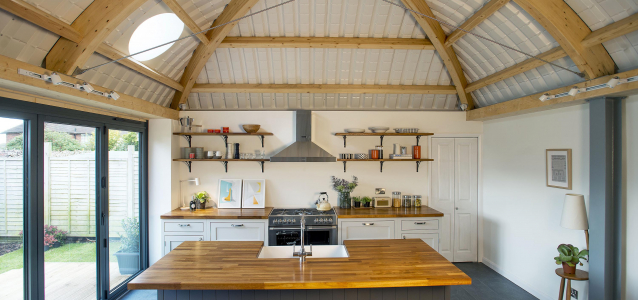Why do I need a flood risk assessment and what is it? If you are applying for planning permission, you may be need to provide a flood risk assessment with your application. This demonstrates the flood risk for your proposed development. When is a flood risk assessment required? A flood risk assessment is required… Read more »
Posts Categorized: planning applications
Can you extend planning permission?

Can you pay to extend planning permission? You used to be able to pay to extend planning permission, but this has not been the case for many years now. Your two options now are to either: Submit a new application Make sure all the planning conditions are discharged and commence development* before the permission expires…. Read more »
What is GPDO?

GPDO stands for General Permitted Development Order. Permitted development gives permission to undertake certain alterations, extensions or additions to your home without requiring Planning Permission. Design above by Will, architect from Brighton and Hove, South East. Click here to see more and shortlist them for your home project. When permitted development doesn’t apply There… Read more »
Can I Convert My Garage Without Planning Permission? Understanding Permitted Development Rules in the UK
Converting a garage is a popular way to add usable living space to a home without extending the property. But many homeowners are unsure whether planning permission is required. The good news is that most garage conversions can be carried out without planning permission, thanks to permitted development rules. In this article, we’ll explain when… Read more »
Do you need planning permission for an air source heat pump?
In most cases, homeowners do not require planning permission for an air source heat pump, as it is classed as permitted development. However, you should check that your property/area benefits from these permitted development rights (see below). Air source heat pumps – what can you do under permitted development? In the legislation, air… Read more »
Do you need planning permission for solar panels?

In most cases, solar panels on residential property do not require planning permission as they are classed as permitted development. However, you should check that your property/area benefits from these permitted development rights (more on that below). Solar panels – what can you do under permitted development? Solar equipment is covered under Class A… Read more »
10 Year Rule (previously 4 year rule) – Planning Permission
What has changed? Previously, the “4-year rule” applied to unauthorised building work or a change of use to a single dwelling house, meaning enforcement action could only be taken within four years of completion. However, as of April 25, 2024, the Levelling-up and Regeneration Act 2023 extended this enforcement period to ten years for all… Read more »
Prefab (and modular) extensions: costs, pros and cons
Prefabrication and modular construction are both off-site construction methods that involve building components in a controlled factory environment, which are then transported to the construction site for assembly. They are becoming increasingly popular for homeowners looking to expand their living space. What’s the difference between a prefab extension and a modular extension? Prefabrication generally… Read more »
Planning permission in an AONB
What is an AONB? An AONB stands for ‘Area of Outstanding Natural Beauty.’ It is a designation given to a specific geographic area in the United Kingdom that is considered to have significant natural beauty and environmental significance. AONBs are similar to National Parks in terms of their protected status and the level of conservation… Read more »
How long does a planning application take? And how to avoid delays…

How long does a planning application take? Whether you are proposing an extension, loft conversion or new build, planning permission usually takes eight weeks to be granted, unless your application is ‘unusually large or complex’, in which case the deadline can be extended to 13 weeks. Design above by Ash, architect from Lambeth,… Read more »